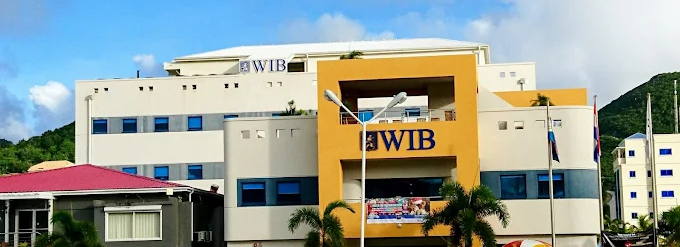 ARUBA:--- Member of Parliament Egbert J. Doran is continuing his efforts to explore structured, military-based training opportunities for Sint Maarten’s youth aged 18 and older, following recent talks with Aruba’s Minister of Justice, the Honorable Arthur Dowers.
ARUBA:--- Member of Parliament Egbert J. Doran is continuing his efforts to explore structured, military-based training opportunities for Sint Maarten’s youth aged 18 and older, following recent talks with Aruba’s Minister of Justice, the Honorable Arthur Dowers.
The discussions form part of Doran’s ongoing follow-up to a proposal he submitted last year to the Government of Sint Maarten, addressed to both the Prime Minister and the Minister of Justice. In that proposal, he called on the government to reconsider allowing local youth access to structured military-oriented training programs abroad.
To date, no official response has been received from the Government of Sint Maarten regarding the proposal, and a requested meeting on the matter has not been convened. “I am looking forward to an open discussion with the Government of Sint Maarten on this matter,” Doran stated.
Despite the absence of a response, Doran has continued engaging Kingdom partners to assess practical options for regional cooperation. He explored whether Sint Maarten’s youth could access existing training opportunities in Aruba and Curaçao and sought further insight into how those programs operate and how young people could benefit.
During the Interparliamentary Kingdom Consultation (IPKO), at the request of MP Doran, a member of the Sint Maarten delegation, military-based youth training was formally placed on the agenda. This resulted in the Kingdom's parliamentary delegations visiting the military training facility in Aruba to gain first-hand insight into the program’s structure and intake process.
As a follow-up, the matter was included on the Kingdom’s Afsprakenlijst, with reference to challenges related to “menskracht” within existing training frameworks. In this context, menskracht refers to the availability of sufficient registered participants to fully utilize the existing training capacity.
According to Doran, discussions with Aruba confirmed that, while the infrastructure and training framework are in place, the challenges primarily relate to ensuring sufficient registered participants to maximize available training opportunities.
Aruba’s Minister of Justice, the Honorable Arthur Dowers, expressed openness to collaboration, stating: “I fully support the idea of regional cooperation in this area and look forward to further exploring these possibilities with the Government of Sint Maarten to benefit the youth of our islands.”
“This is not only about addressing delinquency,” Doran emphasized. “It is about opening doors for young people who want to build meaningful careers and futures.”
He added that partnering with countries that already have established facilities may provide a practical pathway toward expanding access to disciplined training, skills development, and long-term career opportunities for Sint Maarten’s youth.
MP Doran reiterated that he looks forward to receiving a formal response from the Government of Sint Maarten and to the convening of the requested meeting so that discussions can proceed at the national level.
“I remain hopeful that we can work together to further determine the mechanisms needed to make this initiative a reality for our youth,” he said.






 PHILIPSBURG:--- The Windward Islands Bank (WIB) has come under intense scrutiny as a major fraud investigation unfolds, implicating one of its employees in a scheme that allegedly siphoned thousands of dollars from customer accounts. Despite the gravity of the situation, WIB has chosen to remain tight-lipped, offering no comment when approached by SMN News.
PHILIPSBURG:--- The Windward Islands Bank (WIB) has come under intense scrutiny as a major fraud investigation unfolds, implicating one of its employees in a scheme that allegedly siphoned thousands of dollars from customer accounts. Despite the gravity of the situation, WIB has chosen to remain tight-lipped, offering no comment when approached by SMN News. PHILIPSBURG:--- Member of Parliament Darryl York says he is deeply disappointed in the direction signaled by the Government following recent remarks by Minister of Finance Marinka Gumbs suggesting that one or two additional casinos may enter the market.
PHILIPSBURG:--- Member of Parliament Darryl York says he is deeply disappointed in the direction signaled by the Government following recent remarks by Minister of Finance Marinka Gumbs suggesting that one or two additional casinos may enter the market. PHILIPSBURG:--- The Government of Sint Maarten extends its warmest congratulations to the Government of the Netherlands on the successful formation of a new coalition administration led by Prime Minister Rob Jetten.
PHILIPSBURG:--- The Government of Sint Maarten extends its warmest congratulations to the Government of the Netherlands on the successful formation of a new coalition administration led by Prime Minister Rob Jetten.




